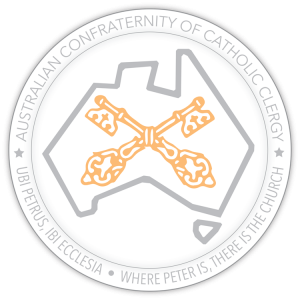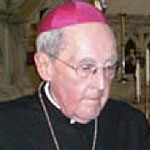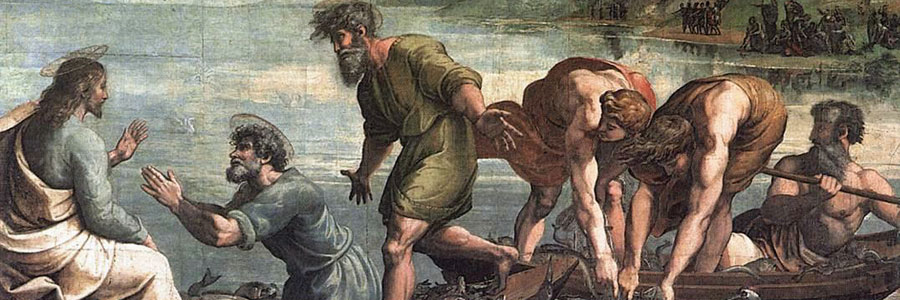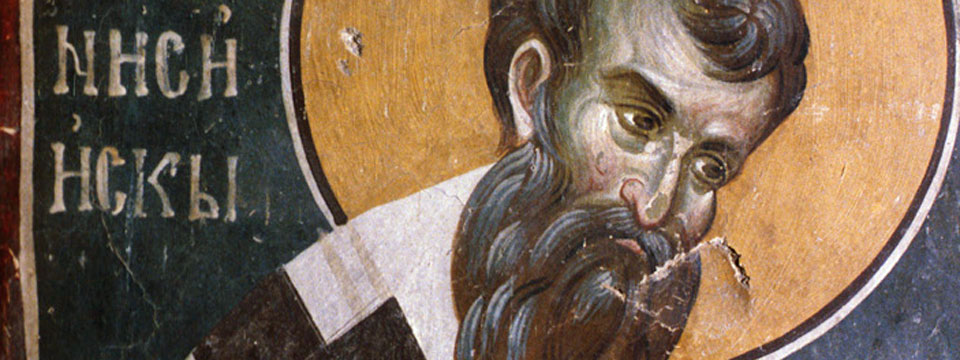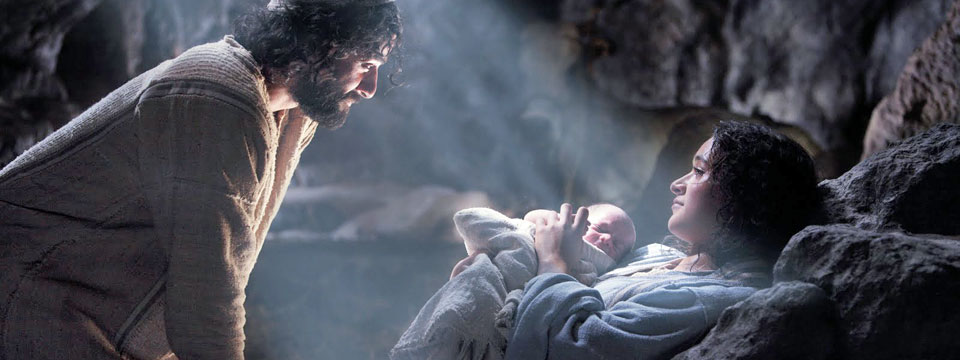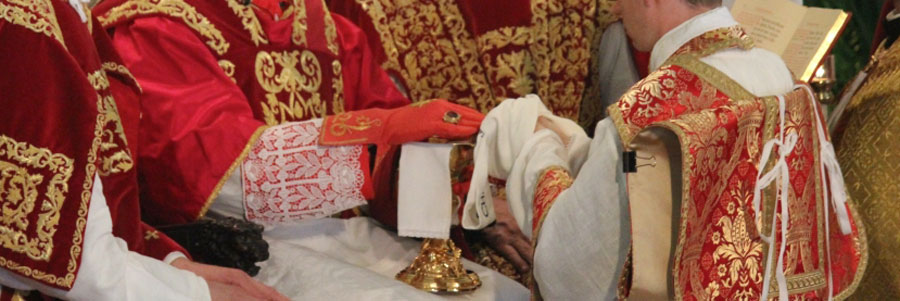The growing darkness
We who are Christians tend also to conform to the optimism that is politically correct in western counties. So we are inclined to assume that everyone believes in God in some form or other. It is an assumption that comforts us. The trouble is it is not true. All over the world the evidence shows that the forces that deny the existence of God have become notably stronger. Pope Benedict, who is a realist after the model of St Augustine, agrees. He has said recently: “ In our days in vast areas of the world the faith is in danger of dying out like a flame that no longer has fuel….” The British theological writer, Nicholas Lash – who may well not be your favoured theologian – said a while back very truly: “Atheism is the deep disease and darkness of the Western world and the source of manifold oppression and moral anarchy.”
Academics, journalists, politicians, celebrities of the entertainment and literary worlds are among the prophets of this unbelief. The great theorist of the European union, Jacques Monod, asserts: “Human beings have finally to recognise that they are alone in the unending immensity of the universe from which they have emerged by chance.” This is the view expressed everywhere more and more aggressively. It excludes the presence and authority of God glimpsed in nature, revealed in the Old and New Testaments and made present in the Church. So Pope Benedict has warned us that “There is today a crisis of God.” God is everywhere being kept out of public life; religion is widely seen as the idiosyncrasy of the individual.
By a disturbing number of persons, religion is also being seen as an enemy of human wellbeing. In our countries a majority live as if God does not exist and if he exists, he does not belong in today’s world. This unbelief and the secularism which goes with it are like an infection in our world, a kind of spiritual swine flu, highly contagious. Of course you could argue that there has always been some unbelief, at least of a practical sort. Except that today this secularist unbelief is pandemic, not just an isolated outbreak. Everywhere there has been a dimming of the light of faith; society has become harder, more violent, more corrosive.
We Christians, we priests, are not proof against this infection. Indeed the Pope has said that the secular spirit has infiltrated even to the highest levels in the Church. This is a spirit that would make religion no more than a human project. So the Pope now says his mission and ours is to bring God to the world. Of all the problems that face the Church, says the Holy Father, “none of them can be solved unless God is put at the centre, unless God is again visible to the world in a decisive way through us. The future of the world is being decided today, whether God, the God of Jesus Christ, exists and is recognised as such or whether he disappears.”
Priests as a counter force
The Catholic Church and in the Church especially her priests, stand in this unbelieving world as a counter force to the destructive, corrupting power of unbelief; that is evident if only by the fury and scorn with which the secular forces of unbelief attack the Church and especially us her priests. They recognise that we more than others are called and equipped to secure the presence of God in the world in a way that can speak to human hearts and to the human situation. The trouble is the extent to which we priests and the faithful to whom we try to minister are ourselves affected by this atheism. It is in the air we breathe.
Already 40 years ago, with his usual foresight Joseph Ratzinger wrote in his Introduction to Christianity: “If we are honest with ourselves we will have at times to recognise the insecurity of our own faith, the oppressive power of unbelief in the midst of our own will to believe.” We tend to succumb to a practical failure of belief in God; our faith becomes reduced to a kind of theism; that is often signalled by our failure to engage in regular, committed, personal prayer.
Over the past 40 years our parishes and dioceses have been absorbed in overhauling structures and institutions and promoting the causes that seemed necessary in order to implement the Second Vatican Council or to correct the misinterpretation of it or to support the reforms of the reform of the liturgy. It is still a time of great busyness about our projects for the advancement of the Church or should one say, even for the survival of the Church. It is exactly about this that the Holy Father has given us a warning:
“One can do many things,” he says, “in the ecclesiastical field all for God, yet remain totally taken up with oneself without encountering God. Work replaces faith but then we become empty within.” If we think we are serving the Church but have been so taken up with the work itself, then our capacity to perceive God weakens and our sensitivity to God deteriorates.
Do we in fact pay attention to God – in the liturgy we celebrate, in personal prayer? Do we set time aside each day for personal prayer? Do we have a strong sense of our union with God, the union that is the true goal of the life of every one of God’s human creatures? Do we appreciate that union, do we enjoy it, do we give thanks for it? How well do I know God? Do I spontaneously speak to him – in prayer time, yes; but also when I go about by myself in the ordinary things of life? How real is God to me? Do I consciously love God?
Attention to God is made up not of much thinking but of loving much, of bending my will to his. The best ground for that loving is in the teaching of the Church on who God is. The doctrinal formulations of the Church are not the goal of our relationship with God; however they are necessary for offering us the truths on which our imagination and will have to rest; in those dogmas the Church has formulated her own experience so that our relationship with God is not perverted. Practically, that might mean having to hand for my prayer time and for my spiritual reading the Catechism of the Catholic Church or the Compendium and these days, the homilies and addresses of Pope Benedict. Incidentally, a noted American Evangelical has described the Catechism of the Catholic Church as “a book of worship – focussing again and again on the majesty of God, inviting readers to reflect on God’s character, to respond to his love, to live as he commands, to devote themselves to his service.” Do we have a similar appreciation of it?
Silence: allowing the mystery to speak
The very word “God”, Cardinal Newman has said is a theology in itself, indivisibly one, inexhaustibly various from the vastness and simplicity of its meaning. The noted Dominican so well esteemed in the first half of the 20th century, Father Reginald Garrigou-Lagrange, used to give a public lecture every Saturday in the “aula magna” of the University of St Thomas in Rome. These lectures were attended by large numbers of people including lay people from the city. One Saturday, Father Garrigou-Lagrange was just beginning his lecture. The first word was “God”. He said the word – and then fell silent. After a while he began again, but, having said the word “God” he was unable to utter another syllable. Everyone waited, tense and silent. Then he closed his book, stood up and went away. The eye witness who reported the incident commented: “It was the most impressive theological lecture I have ever heard.” Yet the name of God is used so frequently by unbelievers and by Catholics affected by the secular spirit as a swear word or in blasphemy. For us Christians it is the holy word, the word our spiritual ancestors of the old Testament would not write out fully in the Hebrew language nor even pronounce. The liturgy teaches us to hold on to and attend to the name of God with profoundest reverence; it has us address God with the help of angel voices in the preface of the Mass; with awe and trembling it has us invoke Agios o Theos, the holy God, the mighty God.
Some of the truths which we have to take into account in our relationship with God were set out by Cardinal Newman in words based on the dogmatic teaching of the Church. In this rather long paragraph, for instance, he says:
God is an individual, self-existing, all perfect, unchangeable being, all-sufficient for himself, without any origin. He created and upholds the universe. In God’s hands are all things; he has a purpose for every event; with adorable and neverceasing energy he has implicated himself in all the history of his creation. He will judge us, his creatures, sooner or later according to that law of right and wrong which he has written on our hearts. God is infinite; he has an infinite number of perfections. God is transcendent, absolutely distinct from the world, incomprehensible as its creator, upholder and governor and supreme Lord. Yet he is immanent to his creation; that means he is ever present with all he has made and confronts all he has made with his particular and most loving providence and manifests himself to each according to their need. He is totally beyond us and our world and yet he is closer to us than we are to ourselves.
What does all that mean to me? Does any of it come into my personal prayer? Does it even interest me? Is my daily prayer a time that I spend with God, to get to know him better, to love him better? If I have been given the grace that enables me to meet with God daily in personal prayer, to encounter him, has that become routine spent out of a sense of duty rather than with the readiness of love? St John Vianney used to teach his people to pray in these words: “My God grant me the grace to love you as much as I possibly can.” It is a realistic prayer because we have varied capacities for love depending on our life experience and different abilities of expressing it according to our temperament. The important thing is that we fix our heart on God. Perhaps it helps to use the brief prayer from The Imitation of Christ: “O God you are my all and every good.” To say that meditatively, trying to mean it, can throw light on our relationship with God, on both its strengths and its lacks. “Again and again,” Cardinal Ratzinger once said, “I am aware of how I fail to live up to my calling, to live up to the idea God has of me, of what I could and should give.”
Living so as to deepen our faith
Each of us lives and works in the aggressively secular situations of Australia or New Zealand; the worldliness and the unbelief are everywhere and they seep into my mind and heart as they do of the people for whom I am responsible. A lot of the time I am not aware of it. Because of it my sensitivity to God can atrophy to such an extent that the words of faith become almost meaningless. I am given faith – the theological virtue – at my baptism; it is something living which includes understanding, will, feelings. That faith can fasten its roots ever deeper in my life so that my life becomes more and more nearly identical with my faith; but I have to cooperate with it, to cherish it, feed it with prayer; it is never just a possession. A man, a priest, can always still give way to the tendency to stop believing, to turn away from God, if not in intention in fact. Faith demands our whole existence, our love, our will since it necessarily goes beyond mere knowledge, beyond what is demonstrable, it requires letting go of ourselves. That can a bit frightening – to live by faith.
Yet to resolve with all my will to live my life in God’s presence is the great adventure. In the end it is beauty; it is a life utterly worthwhile; it is the only thing that makes sense ?for me as God’s priest, to dwell always in his presence. It is at once the fulfilment of the life God has called me to and it is the resource for the mission for which he equips and calls me. It is what St John Vianney described: “Everything in God’s sight; everything with God; everything to please God.” In a world where everything tends to drag me back into the gloom of unbelief, I dare not aim for less, no matter what difficulties I foresee, no matter how my deep rooted concern for my own comfort and my own self-will fight to hold me back.
The deepest part of the priest’s being is what I have become. In the sacrament of holy orders, Christ the Priest has touched and transfigured me in my being, in what I am, in my deepest reality. As Pope Benedict would remind us, to the upset of secularised Catholics, the priest is configured to Christ the Priest, stamped inwardly; in the deepest part of his being; he is given the shape of Christ; because of this the power of Christ can flow through him as Christ’s representative. In ordination the gift I received marks my soul and draws me into a unique union with Christ the Shepherd and Head of his Church. Of course here we are talking about the character given by ordination, but denied by numbers of theologians who have difficulty with the supernatural and indeed with the transcendent who is God. I am stamped inwardly in the image of Christ the Priest with an indelible character. Maybe some of you did not hear much about that in your seminary course. Cardinal Ratzinger noted: “The Catholic understanding of what a priest is has lost currency and acceptance even within the heart of the Church’s consciousness as became evident after Vatican II and developed into a crisis of priestly life and vocation.” To be able to live and function as a priest I have to be constantly aware of the truth of what I have become.
The character of priesthood grounds a vocation that seizes upon the whole of a person’s life for its full flowering. In the words of St John Vianney: “The priest is a man who acts on behalf of God, a man who is endowed with all the power of God.” Therefore it has to be that the priest is one who grows around God and not around his own centre; he has to be a man who has tried to make the love of Christ the centre of everything. That can happen only if I give the time to pay attention to God. In a moment of self revelation in one of his books, Cardinal Ratzinger wrote: “I know God is always there. And he knows in any case who I am and where I am. Which is all the more reason for me to feel the need to call on him, to share my feelings with him, to talk with him. With him I can exchange views on the simplest and the most intimate things as well as those that are weightiest and of great moment. It seems somehow normal for me to have occasion to talk to him all the time in everyday life.”
I suppose if a priest of such great industry and diligence in his work as Pope Benedict can do that, I should be able to do so too. Some of us of an older generation were taught by the Sisters in school to break regularly, as they said, to bless the hour. I surely can do that with a simple aspiration at times through the day, saying something like: “Sacred Heart of Jesus, I implore that I may love you ever more and more.”
Being with Jesus
One notices that even in the best of marriages, the man and the woman need to work on their mutual affection else it fades. So husband and wife wisely take the occasion to have time alone by themselves.; they need to get away from the crowd in order to nourish their mutual love. Perhaps St Teresa of Avila had that in mind when she defined prayer as “loving communion with the one we know loves us”. After all who should God love if not his priest? The prayer we need for our priestly existence is primarily “being with the living God in faith”: “God is always present but prayer takes place only when, by faith, I am consciously present to him. Being with Jesus, the Son of God, is the essence of prayer.” To be with him, to give our attention to him means we do need some form or organisation of our time lest we end up just daydreaming or thinking about oneself. But methods and different forms of prayer as such are quite secondary if I am consciously present in faith to Jesus who is giving himself to me. By all means choose a technique of prayer that suits me. All techniques are good if they help me be in loving communion with him; we should use them or drop them with great freedom in so far as they are helpful. As long as we do not lose sight of the truth that prayer is “being with Christ”. After all it was the prayer of the apostles whom Jesus chose “in order to be with him”, as St Mark says. It was he who taught them how to pray. As he does if we stay with him in communion with him by faith and the life of grace.
Yet the sadness and suffering that are part of life, including the life of a priest, do not make prayer easier. The life of the priest is in itself the high road to heaven, but this high road can be difficult. There are at times dark valleys when we can seem to lose awareness of God present with us and then we ourselves seem to be unable to be signs to others of his presence. In those times, instead of losing myself in self pity, which is horribly corrosive of love, I have to ask: What does God want? It can be a matter of letting go of myself, of approaching him as the merciful one, of seeking refuge in him. I have become a priest in the trust that this leap into what must be an unknown future will not end in nothingness; rather it can become that act of love for which I was created.
Love acts from the will
It is so important not to identify good prayer with feelings. We really know better. If a parishioner came and told of his worry that he was unable to feel sorry for his sins we would smartly tell him feelings are not necessary; contrition is in the will, in the resolution not to sin again. But we don’t always practise what we preach. So we need to become convinced that love is in the will; it is where I set my heart. Of course it is easier to realise the condition of our feelings; they press upon us; it is easier to recognise them than to identify acts of our will. For instance we should resist lust out of love for chastity but probably love of chastity will be in the will only; we don’t feel it. That is why that very good little prayer from the Psalms crops up at various points in the Office: “Bend my heart to your will, O God.”
It can be that our prayer which is loving communion with God is a delightful experience; we feel love for God. That is a kind of bonus God gives us, as The Imitation of Christ suggests sometimes because we are a bit feeble and need the boost. More often probably for many of us this loving communion will be in the will and without anything much in the way of pleasant feelings and in fact a lot of the time may be quite an effort. Prayer may usually be quite a burden to me and bring little satisfaction. Yet somehow I manage to give my time as best I can to this prayer, struggling against distraction and making occasional acts of affection for God but moved to it with a dry or even an arid will.
The Holy Spirit comes in our weekness. Has this prayer any value. Often it does not feel like it. But St Francis de Sales teaches us that this prayer is most pleasing to God, even though it feels dry and unrewarding; indeed he says it may please God more than the prayer from which I get delight. That prayer is best in which there is more love of God. Probably it takes more love to persevere in dry tasteless prayer than to continue in prayer that gives us joy. After such apparently difficult prayer we would not say, I felt the presence of the Holy Spirit. Yet the conviction of faith tells me Holy Spirit was truly there helping me to struggle on despite distractions and discouragement.
If we give ourselves to God only when we desire comfort or a pleasant experience from it, our love of God is defective; probably we love ourselves rather than God. A mature love of God will love him equally in sickness and in health, in good times and bad, in delightful prayer and in arid prayer. Jesus loved his Father on Tabor and on Calvary. We spend time with God in prayer because we know by faith that we are in union with him. We spend time with him because it expresses and nurtures that union; it pleases him and we need to be with him. It is loving communion because we fix our will in him.
The bright darkness of God
Think again of a husband and wife in a stable marriage. The time they spend together is often humdrum, not “over the moon”; but, without that being present to each other, they drift apart as shall we drift away from God if we do not spend time with him. Our prayer then will never be the delirium of drugs nor of infatuation; as we mature in communion with God it does at times, even often perhaps, become marked by peace, by a quiet security, a sober joy, a conviction that all is truly well. As we might expect it can take on the bright darkness of God himself. Yet in this there is a blessedness and as we persevere in the prayer; it has high points, for us priests, often in the liturgy, when perhaps on some feast or great occasion we know even the sober intoxication that comes from communion in the Trinitarian love of God.
Though we are limited human creatures, we can know something of the mystery of God if we pray. We can truly know and love God, catch glimpse of his light even; we can know we are loved by God and, as his priests, are in a relationship of being with God. In his Son, God has made known to us the personal mystery of himself and has thereby disclosed to us our deepest mystery and the meaning of our priestly being. The mystery has been revealed yet it remains a mystery. That is the nature of God who is infinite. So there is a point at which our prayer can be only silence. Silence is not dumbness; dumbness is a vacuum of words, born of a vacuum of the soul. But silence nourishes the soul.
In front of the mystery of God we are at once in the light of the revelation given in Christ and in the darkness of the mystery. Our relation with God, and our prayer, is always a chiaroscuro. That Italian word means half revealed; literally it means at once light and darkness. The darkness of God is dark because it gives too much light for our capacity, as it were blinding us. That is the paradox of God. St John of the Cross stated it using the Old Testament exodus and the pillar of cloud that went before the escaping Israelites: “How wonderful it was,” he says, “the pillar of cloud, though it was dark, illumined the night.” The darkness of spirit which can mark our relationship with God is often the divine light which is too close for us to focus. In this bright darkness the soul is enfolded in union with God.
This union lies at the heart of our priesthood; we priests must give ourselves to it with determination. Pope Benedict encourages us in that determination with these words of faith: “God exists and is alive; we believe in him; we live before him in his sight, in being with him and from him. And in Jesus Christ he is, as it were, with us bodily.”
From the bright darkness of God, Blessed John Henry Newman made a prayer with which I want to conclude this reflection:
O Lord, my God I adore you because you are so mysterious and incomprehensible. Unless you were incomprehensible you would not be God. For how can the infinite be other than incomprehensible to me? Let me ever hold communion with you, my hidden but living God. You are in my inmost heart. Every breath I breathe, every thought of my mind, every good desire of my heart is from the presence within me of you, the unseen God. I see you in the material world but dimly, but I recognise your voice in my own intimate consciousness. I turn around and say: “Rabboni. O be ever thus with me; and if I am tempted to leave you, do not, my God, ever leave me.”
